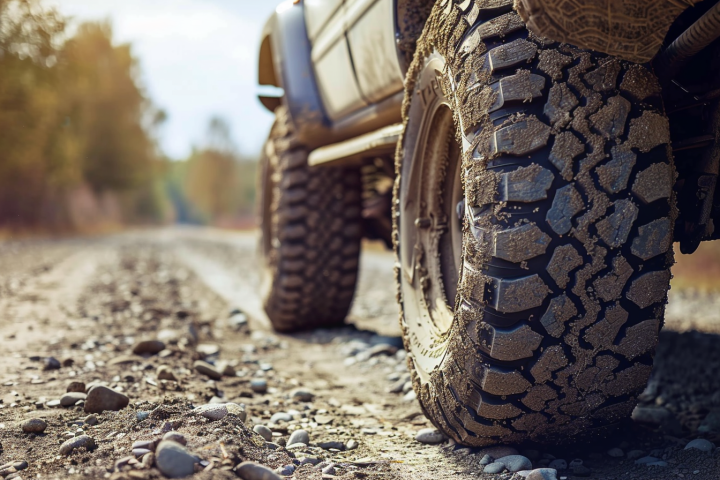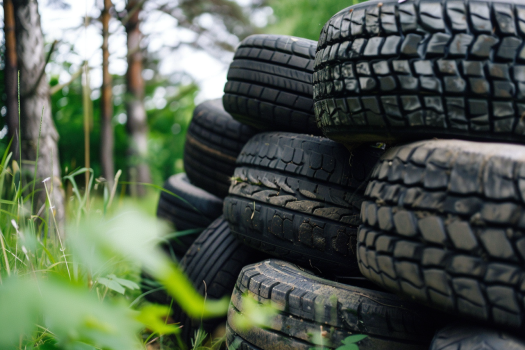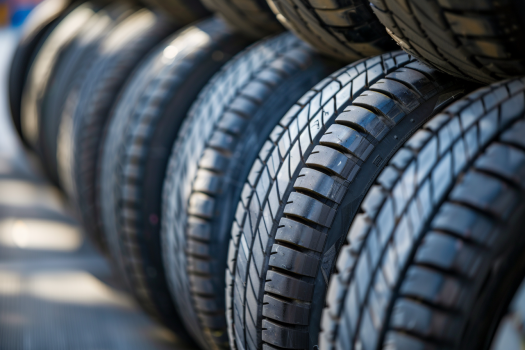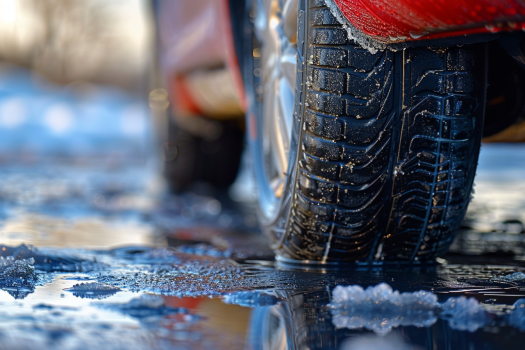Last Updated on April 21, 2024
Ensure Safety and Performance with Proper Tire Inspection
There is no avoiding that winter in the Northern U.S. and Canada means rain, snow, ice, and cold temperatures. Each weather condition demands many of your tires to keep you safe on the road. You may be wondering about the state of your tires or what you need to know to ensure you have the right tires on your vehicle.
How To Check Tires?
Here are three things to check if you need new tires this season.
#1. Damage to the Sidewall
Check both sides of the tire for damage. This could be in chunks of missing rubber, deep abrasions from hitting curbs, or a bulge in the sidewall. A lump in the sidewall is likely related to a broken cord inside the tire. This is a severe condition that will almost certainly lead to tire failure eventually.
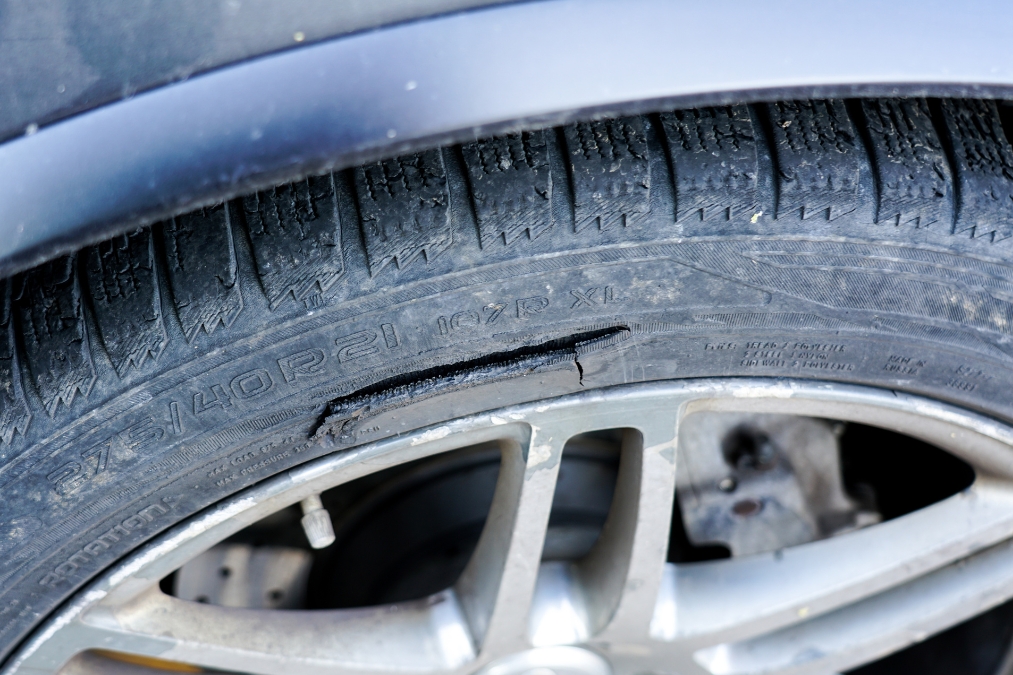
Any chunking larger than a dime or abrasion that has exposed the textile cords warrants further inspection. Larger cracks may indicate hitting a curb or an impact with a road hazard. All these conditions can be assessed at a tire dealership or auto service center to determine the damage’s severity.
#2. Worn-out Tread
No tire safety check is complete without measuring the tread. All tires have a bar in the grooves molded to a height of 2/32nds of an inch. If this bridge in the track is level with the top of the tread, you know it is time to change your tires. You can also measure the depth of the way using a penny. If you can see all of Lincoln’s head, then the tire is due to be replaced.
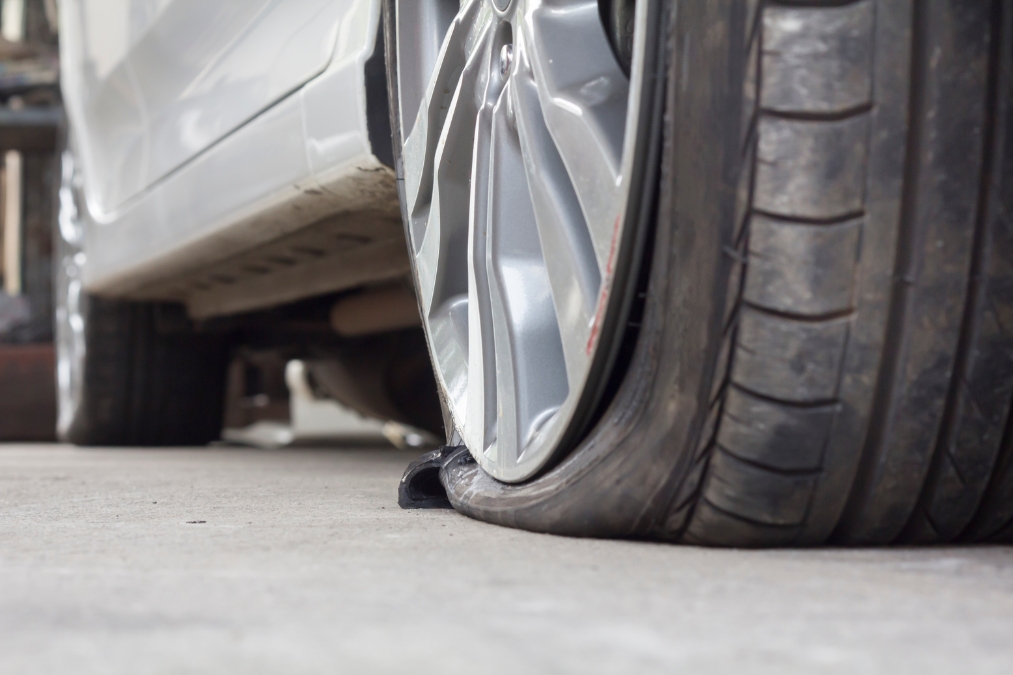
Also, check the tread for areas that are worn unevenly. This could signify mechanical issues such as worn suspension parts or a wheel misalignment. Irregular wear is more common on the front tires. To inspect the tread, turn the steering wheel to one side so you can see the entire track surface if there is a wear pattern like the one on the left.
It would be best to have your tires rotated and the vehicle inspected for mechanical issues. If any part of the tread is worn wholly smooth or tread cords are showing through the rubber, your tires must be replaced.
3) Tire Type Appropriate for Your Vehicle and Climate
This may seem the most obvious thing to check, but many people fail to recognize the difference between summer, all-season, and winter tires. If the tire type is not apparent from the name or markings on the tire’s sidewall, the tread pattern will give you a clue as to the climate and conditions your tire is designed for.
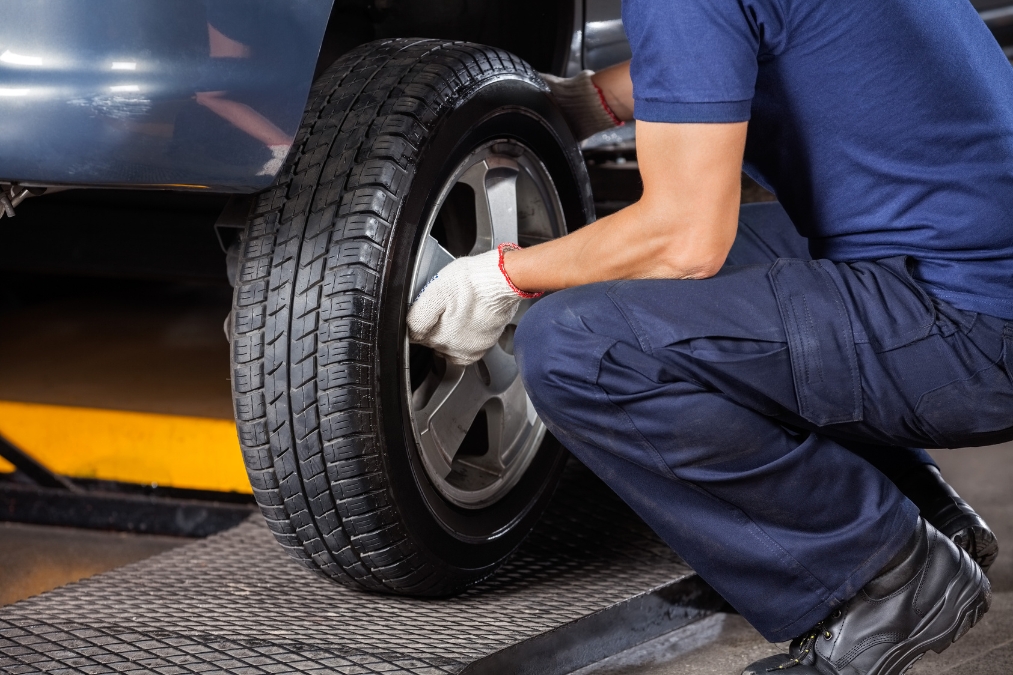
Understanding Tire Treads: How To Check Tires?
Some tire treads are only optimized for wet and dry roads (summer tires). The tracks on these tires are characterized by circumferential grooves across the face of the way. All-season tires are made to provide adequate traction in wet, dry, colder weather and light snow.
These tires look similar to summer tires, except they have many more cuts in the tread features. Narrow cuts in a tread are called sipes. If some of the stakes in the track are wide enough to create a lateral grove, the tire is likely an all-season tire. These tires perform adequately and provide good mileage in any weather or temperature.
How To Check Tires? Making the Right Choice
Winter tires usually have a softer tread rubber and more tread blocks with dense siping for extra traction on slush, ice, and snow. Even the highest quality, brand-new summer tires will not perform well in winter conditions, and winter tires will wear out quickly in the heat of spring and summer.
For this reason, you need to know what type of tires you have on your vehicle and decide if they are appropriate for your climate.
How Tire Easy Help You?
At Tire Easy, we want you to be armed with all the information to decide if you need new tires this season. If you want assistance with your next tire purchase, please visit www.tires-easy.com. You can also call us toll-free at 1-855-978-6789. Customer Service is open 5 am-5 pm PST, Monday to Friday. Our Customer Service agents would be happy to assist you with any of your tire needs.
FAQs
What are three things you should check regarding the tires on your vehicle?
When checking your vehicle’s tires, it’s essential to inspect the tread depth, ensuring it meets safety standards. Correct tire pressure is crucial for even wear and optimal fuel efficiency. Lastly, watch for any signs of damage, such as cuts, punctures, or bulges, as they can compromise tire performance and safety.
How do you check tires before buying?
Before buying a tire, carefully examine its size to match your vehicle’s specifications. Consider the tread pattern, selecting one that suits your driving needs for all-season driving or handling winter conditions. Additionally, opt for tires from reputable brands known for their quality and durability to ensure long-term performance.
What are the three different qualities of tires?
Tires come in various qualities to meet diverse driving needs. Premium tires offer top-tier performance, safety features, and durability, making them suitable for discerning drivers. Mid-range tires balance cost and quality, catering to most drivers’ requirements. Budget tires, while economical, provide basic features and are ideal for those looking for affordability without compromising safety.
What questions to ask when buying tires?
When buying tires, ask critical questions to make an informed decision. Inquire about the suitable tire size for your vehicle and the tread pattern that matches your driving conditions. Explore any warranties or guarantees associated with the tires to ensure peace of mind. Consider the expected lifespan based on your driving habits and whether the tires offer the desired traction and handling characteristics for your specific needs.




